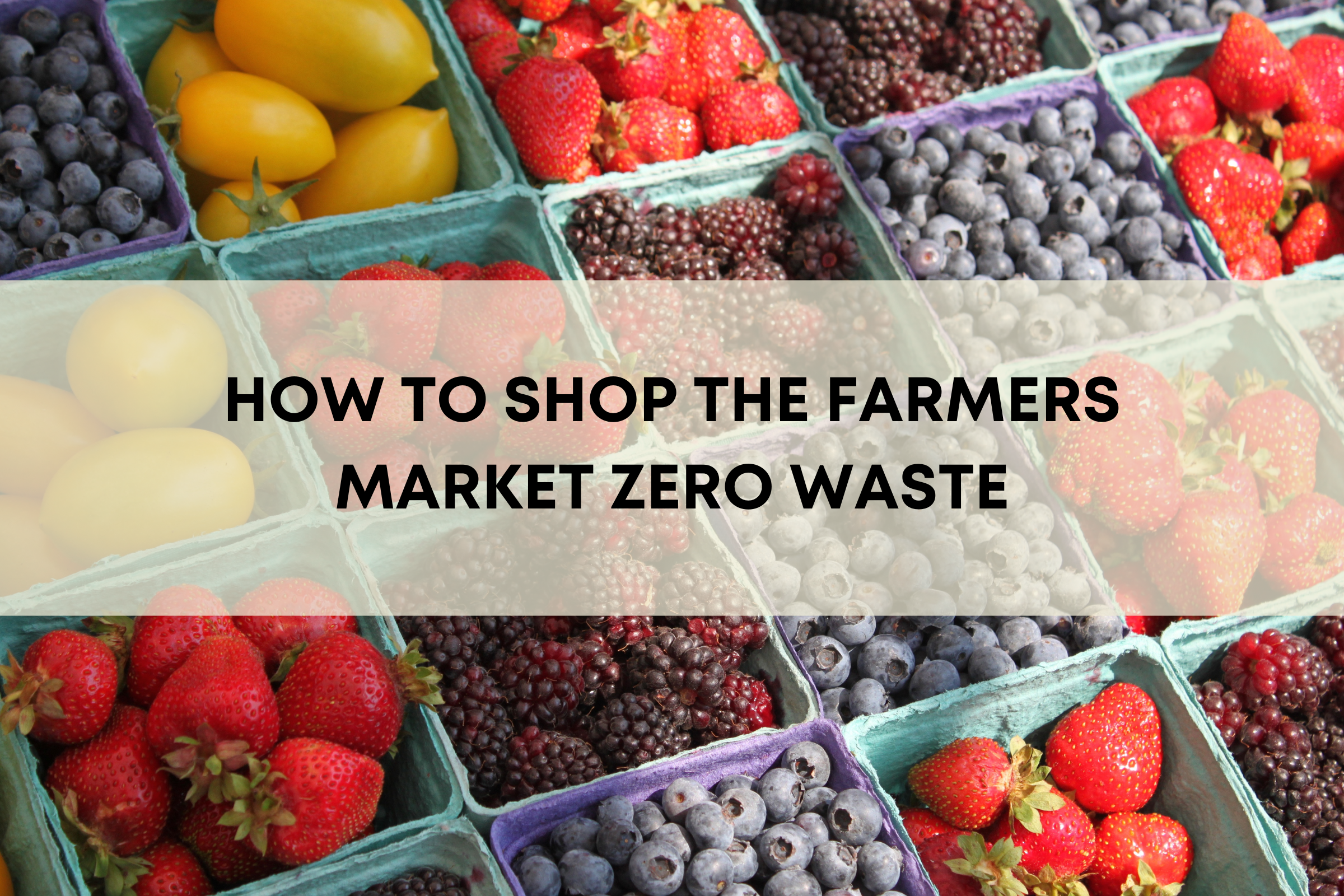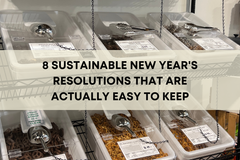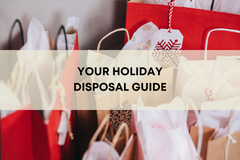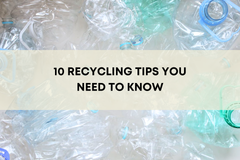How To Shop The Farmers Market Zero Waste

There’s nothing quite like a weekend stroll through your local farmers market: fresh produce, fresh food, and the chance to support local farmers, businesses and vendors. But even farmers markets can be hotspots for packaging waste if you’re not careful. From plastic clamshells to disposable produce bags, the waste can add up. With the right prep, however, you can make your weekly market haul completely zero waste!
Many times, produce sold in supermarkets and grocery stores have stringent appearance standards. Farmers Markets allow growers to sell all of their produce, even the imperfect ones. In fact, in a 2019 National Farmers Market Survey, 40% of vendors reported being able to sell imperfect products that otherwise wouldn’t have been accepted in mainstream markets, and 77% of them noted that participating in a local farmers market led to increased production of more diverse produce. (1)
Farmers Markets fuel the local economy with locally and often organically grown produce and goods that are not only good for you, but often cheaper and fresher. They also help to support conservation, connection and education, and create jobs in the local community.
If you have the opportunity to sign up for a CSA (Community Supported Agriculture) box in your area, this is another really great way to support those local farmers by opting in for a weekly box of fresh produce directly from the farms. Usually, they offer many pick-up locations including the farmers market, if they’ve got a booth. At Tare Market, we work with Whetstone Farm to have Tare Market Northeast as a pick-up spot for their summer CSA boxes.
Contrary to the name, you can buy much more than produce from Farmers Markets. In recent years, farmers markets have now grown to become an exciting weekend activity with coffee and restaurant pop-ups for a quick breakfast bite, fresh flowers, art, and curated vendors for all you may need in your pantry, closet, and more. So, it’s best to be prepared as you visit the Farmers Market to avoid waste, wherever you can! Here are our tips:
-
Bring a Reusable Tote (or two!) — you’d be surprised at what you’d find at the Farmers Market! Make sure to bring a reusable tote, or two, with you so you can pack all of your new finds to bring home.
-
Bring Reusable Produce Bags or Containers – politely ask vendors to place produce directly into your mesh or reusable bags instead of plastic bags. This Mesh Produce Bag Set is perfect for farmers markets.
Mesh Produce Bag Set
Refuse the plastic bags and instead pack your fruits and veggies in these organic cotton reusable mesh bags! This set comes with 3 bags in a small, medium and large size — perfect for any grocery haul. Each bag has a drawstring and also a tare weight.
$12.99
SHOP NOW
-
Bring Reusable Utensils and Containers — If you plan on visiting the Farmer’s Market and grabbing a bite to eat, bring your own reusable utensils and container for leftovers. This saves another plastic utensil or take-out container from entering the landfill. Bring a reusable water bottle as well, so you can refuse the plastic cup!
Bamboo Utensil Set
Available in both an adult and kids set, these bamboo utensil sets include a bamboo fork, knife, spoon and pair of chopsticks (not included in kids set) and also come with a carrying case — perfect to throw into your bag and pull out when needed.
$10.99-$16.99
Silicone Bento Box
Reusable water-tight silicone bento box with compartments. This reusable container has a very secure lid and is ready to take on whatever food you put in it. It’s also microwave, dishwasher and freezer-safe.
Available in two colors: Blue/Green Tie Dye and White Confetti
$27.99
-
Meal Plan Ahead of Time — it’s easy to go shopping without a grocery list, but we promise it’s easier on you & your wallet to go when you know exactly what you need. We highly recommend meal planning for the week ahead of time, so you have a targeted list of what you need to buy.
-
Shop What’s In Season — Buying seasonal produce is a great way to take advantage of the growing seasons where different fruits and vegetables are most productive and least expensive to grow. Plus, it’s a great way to try something new and incorporate a new fruit or veggie into your diet that you otherwise wouldn’t have tried!
This Seasonal Produce Guide by the USDA is a great resource so you can browse by season. (2)
-
Consider Biking or taking public transit — Farmers Markets are great, but they are usually very busy. Skip the traffic and back-ups and bike there instead, or take public transportation. Add a basket to your bike or bring a grocery cart or bag with you for easy transport home.
Shopping at farmers markets is great for the environment as you are not only supporting local farmers, but also fueling the local economy, and eating fresher, locally-grown foods. With a little planning, your weekly grocery trip can be a huge win for both your household and the planet.
We’re lucky to have the opportunity to pop up at the Mill City Farmers Market throughout the season here in the Twin Cities, and we thank you for supporting us + choosing to shop with local vendors and farmers!
Sources:
Recent Blog Posts
Discover more tips on living #ZeroWaste!
-

8 Sustainable New Year's Resolutions That Are Actually Easy To Keep
Sustainable New Year’s resolutions don’t have to be overwhelming. These 8 simple, realistic habits make it easier to reduce waste, shop more intentionally, and build low-waste r...
Read more -

Your Holiday Disposal Guide
The holidays can generate a lot of extra waste, but much of it doesn’t need to end up in the landfill. This holiday disposal guide breaks down what can be recycled, composted, r...
Read more -

10 Recycling Tips You Need To Know
Recycling can be simple, but small mistakes can contaminate your recyclables and reduce their impact. In this guide, we share 10 practical tips to help you recycle smarter, from...
Read more



